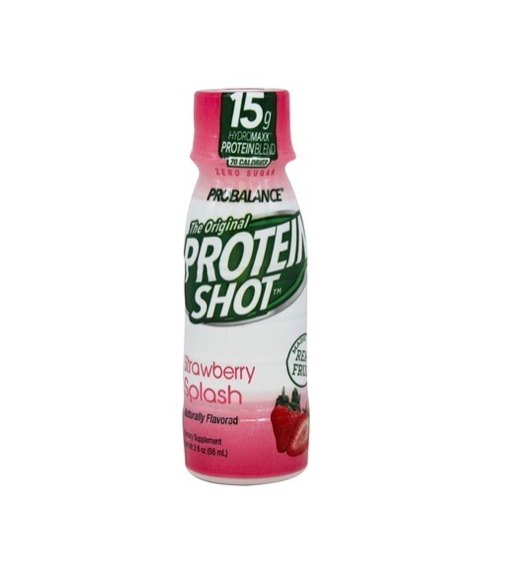 Probalance Inc., a health and fitness company, has been hit with a class action lawsuit alleging it misrepresents the nature and quality of some of its liquid protein products.
Probalance Inc., a health and fitness company, has been hit with a class action lawsuit alleging it misrepresents the nature and quality of some of its liquid protein products.
Plaintiff John M. Ulrich filed the Probalance class action lawsuit last week in Illinois federal court on behalf of consumers who purchased the following dietary supplements: Probalance Protein Shot, Probalance Protein Shot Plus Energy, Probalance Protein Shot XL and Probalance Protein Water.
Ulrich states that he purchased four bottles of Probalance dietary supplements from a CVS Pharmacy for $2.67 each, plus tax, on Oct. 10.
According to the class action lawsuit, Probalance made false and misleading statements related to the protein content of the dietary supplements.
Ulrich also asserts that Probalance did not comply with federal and state regulations regarding the testing methodology of its protein content and daily value percentage.
The protein product class action lawsuit indicates that whey is a complete protein source that includes all of the essential amino acids that are necessary to build protein-based compounds, including muscle tissue, hair, fingernails, skin and enzymes.
Sales of whey protein products are reportedly estimated to reach $7.8 billion by 2018. However, the high level of competition in the market and escalating costs of whey protein have led sellers to have “slim” profit margins.
“To reduce its protein manufacturing costs, [Probalance] adds collagen protein isolate to the Products,” the protein shot class action lawsuit states. “Collagen protein isolate is not the same quality of protein as whey or even casein, and is also not a complete protein with all of the essential amino acids the body needs.”
Ulrich states that Probalance uses collagen protein isolate as the predominant protein source in its dietary supplements, and charges consumers an inflated price for the products, “which deliver less actual and quality protein than [consumers] reasonably expect to receive.”
The Probalance class action lawsuit states that the U.S. Food and Drug Administration has published a guide addressing nutrition labeling and protein claims. This FDA guide reportedly requires products that include protein claims on their labels to include the percentage of the Daily Reference Value (DRV) listed in the Supplement Facts section of the label.
Ulrich asserts that Probalance lists the protein supplements as not having a DRV for protein, which according to the class action lawsuit is a violation of state and federal law.
Probalance also fails to comply with the section for the Protein Digestibility Corrected Amino Acid Score (PDCAAS), which measures the quality of protein based on human amino acid requirements and our ability to digest it.
The protein supplement class action lawsuit states that Probalance did not test for individual amino acids and did not use the proper factors designated by the federal Food, Drug and Cosmetics Act.
The Probalance class action lawsuit asserts claims for violation of state consumer fraud laws, breach of express warranty and unjust enrichment. Ulrich seeks injunctive relief, compensatory and punitive damages, attorneys’ fees and costs, and other relief deemed appropriate by the court.
Ulrich is represented by Nick Suciu III of Barbat Mansour & Suciu PLLC.
The Probalance Liquid Protein Class Action Lawsuit is John M. Ulrich v. Probalance Inc., Case No. 1:16-cv-10488, in the U.S. District Court for the Northern District of Illinois, Eastern Division.
ATTORNEY ADVERTISING
Top Class Actions is a Proud Member of the American Bar Association
LEGAL INFORMATION IS NOT LEGAL ADVICE
Top Class Actions Legal Statement
©2008 – 2025 Top Class Actions® LLC
Various Trademarks held by their respective owners
This website is not intended for viewing or usage by European Union citizens.















One thought on Probalance Class Action Says Liquid Protein Products Are Misrepresented
Can emails also violate the law?